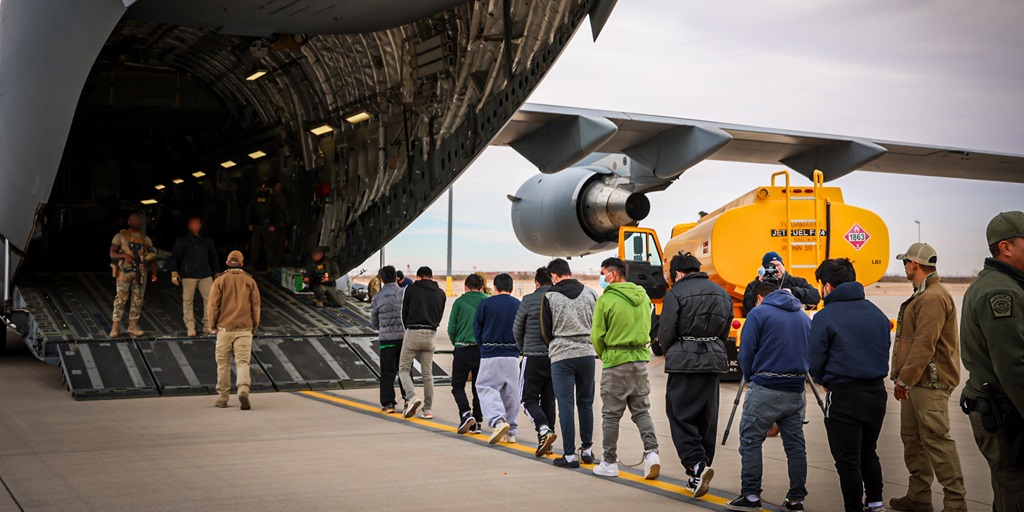In yet another striking move by the Trump administration, the White House announced on Wednesday, Feb. 5, that migrants deemed too dangerous for detention centers would instead be sent to Guantanamo Bay. The military prison is notorious for housing and torturing suspected Al Qaeda terrorists, including those accused of planning the 9/11 attacks. The administration claims that the individuals being sent to Guantanamo are members of Tren de Aragua, a Venezuelan gang with ties to human trafficking and organized crime. While this reasoning may sound compelling at first, the decision raises questions about how this administration views migrants, the consequences of treating immigration with counterterrorism tactics and why these individuals are not simply being deported if they truly pose such an imminent threat.
History of Migrants held in Guantanamo Bay
The United States has quietly used Guantanamo as a holding site for migrants picked up at sea for years. Refugees fleeing economic, political and social unrest have been detained there, typically with little due process and under the guise that they never reached U.S. soil. Now the U.S. is planning on sending migrants detained on U.S. land, many of whom have crossed the border seeking asylum, to a prison associated with some of the world’s most notorious criminals? This move marks a jarring escalation, blurring the lines between those who are fleeing unrest and those who have committed heinous crimes. Criminals mark a jarring escalation. It also sends a chilling message: migrants are not only unwanted, but they’re enemies.
If these Migrants are so dangerous, why not just deport them?
Suppose the individuals being sent to Guantanamo are truly these dangerous criminals. Why isn’t the U.S. simply sending them back to their home countries, where they would face legal consequences for their gang affiliations? The answer seems to be just as political as it is incredibly strategic. The previous administration granted Temporary Protected Status (TPS) to thousands of Venezuelan migrants as a result of the country’s political and economic instability. This administration’s decision to hold alleged gang members instead of deporting them points to either a lack of confidence in Venezuela’s ability to handle this or a deliberate move to use these migrants as justification for even more extreme immigration policies. Either way, it raises the question: is the U.S. actually interested in justice and due process, or are they more interested in making a cruel point?
Equating Migrants with Terrorists
What makes this decision to house these migrants in Guantanamo even more troubling is that they will be held in Camp 5, a maximum security ward designated for wartime detainees. This is the same ward where individuals accused of planning the Sep. 11 attacks were held, as well as others who were accused of perpetuating the war on terror against the U.S. This move by the Trump administration draws a direct parallel between migrants, who have often fled poverty or economic hardships, and the people behind some of the deadliest attacks in our nation’s history.
This is not about immigration policy or reform–it’s a politically charged statement. It supports the notion that migrants, particularly from Latin America, are a threat to security rather than merely individuals seeking opportunities. This idea has spread after years of rhetoric depicting immigrants as criminals, rapists and gang members rather than as human beings who often have incredibly complex histories and valid reasons for coming to the United States.
What this says about America’s Immigration stance
With this move to send migrants to Guantanamo, the administration isn’t just establishing a new and harsher immigration policy–it’s criminalizing migration itself. It turns the acts of seeking asylum or a better life into one that’s punishable by detention in a prison notorious for human rights violations.
It’s important to recognize that this policy targets more than a handful of alleged gang members. It establishes a framework for a system where migrants deemed “undesirable” by this administration can be treated as a threat to national security. Today, it’s Tren de Agua, but tomorrow, it could be asylum seekers who came to the U.S. for a better opportunity, grouped in with dangerous individuals simply for political convenience.
This move sends a clear message: in the eyes of the Trump administration, migrants are not only unwelcome, but they’re enemies. In a country built on the backs of immigrants, that is a terrifying precedent.






